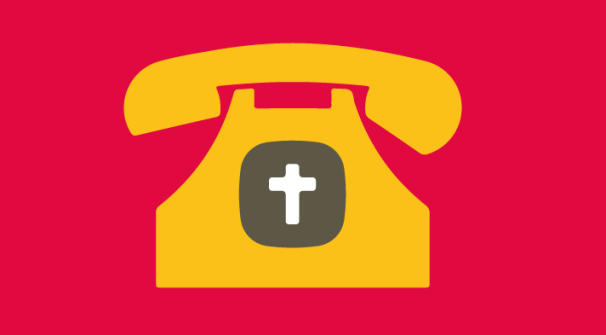Why Should I Create a Giving Strategy?
In a recent survey of young Christian adults, the primary giving challenges identified by the 18-30 year old respondents are 1) working out how much they should give and 2) knowing who they should give to.
Whilst it is commonly understood we should give away a tenth of our income, and that giving to our local church should come first, many of us have a hard time creating space and time to think about our giving in a way that is strategic, proactive and planned.
We often revert to a ‘set it and forget it’ giving habit that defaults to 10% giving that rarely reviews and assesses new causes to give to nor adjusts giving in light of changing circumstances.
This can result in one of the following outcomes:
- Guilt - the constant wrestle of ‘Am I giving enough and to the right causes?’
- Passivity – ‘I've set up my Direct Debits so I don’t need to think about this again’
- Or, most likely, a bit of both
If any of that rings true for you, it might be time to consider creating a giving strategy or plan.
There’s never been a more urgent time to be proactive, strategic and considered when it comes to generosity and giving; the cost of living crisis has hit the charity sector hard with over a third of charity leaders fearing for their survival at a time when the need for charity services has increased exponentially. In 2022, CAF reported charity donations were down by over £1 billion (6%) on the previous year and according to a report by Enthuse, 58% of people feel worse off financially than they did in January 2022, and 55% have said that it is harder to give to charity as a result of the cost of living crisis.
While Stewardship’s community of generous givers has continued to support the causes they love with urgency, energy and prayer, giving more than ever before, we want to help you think through five questions for you to consider when it comes to creating a giving strategy.
1. Who Should I Give to?
Each of you should give what you have decided in your heart to give, not reluctantly or under compulsion, for God loves a cheerful giver. (2 Corinthians 9:7)
In our recent survey about giving trends for young Christian adults, 35% of all participants said that working out who to give to was a major barrier to giving. Perhaps a better way of phrasing the question might be, ‘What am I passionate about?’
Are there particular causes or issues that God has put on your heart right now? Are there causes that link to your experiences as an individual, a couple or a family? Are there particular groups of people, or parts of the world, that are important to you?
If you are clear on what you truly and deeply care about, you can start to build a giving portfolio that has both breadth and depth. For example, a breadth of causes can look like: evangelism, creation care and poverty and debt relief. Building depth is about which specific charities and Christian workers you would like to support within the broader causes areas you care about. We'd also suggest you consider how your church fits into your giving portfolio.
In Stewardship’s Guide to Giving for 18-30s, Stewardship Strategic Communications Officer, Catherine Durant, suggests the following:
‘Spend some time working out what causes really stir up your heart and connect with your passions. Find charities to support in a diverse range of causes – from UK Poverty and Debt to Art and Media, to Global Mission – by visiting Stewardship’s Causefinder you can explore the areas that interest you.’
Think about what is important to you for you to be encouraged and motivated in your giving. Do you need to remain anonymous in your giving? How important is it that you are thanked, or that you are able to see the impact of your gift? What giving goals do you want to set? Do you want to increase the amount you give over time? Do you want to be able to fund particular projects? Once you’ve reflected on some of these questions, the Stewardship Giving Account is a great way to build your giving portfolio, deploy your regular and one-off giving and organise all your giving in one place, online.
2. How Much Should I Give?
‘The earth is the Lord’s and everything in it ‘Psalm 24:1
In Stewardship’s Guide to Budgeting, David Flowers gives the example of Cain and Abel. He writes: ‘In Genesis 4 we read of Cain and Abel bringing offerings to the Lord and then in Genesis 14 we find Abram giving a tenth of his loot from battle to the local king. Sometimes there is simply the invitation to bring an offering and sometimes it is given a specific proportion: one-tenth, which is where we get the concept of tithing in the Bible .’
A 10% tithe is a helpful starting place for ‘How much?’, but it’s not definitive and we should beware a legalistic approach; when we consider the story of the widow and the mite in the Bible, we see that what matters is not so much how much we give but the attitude with which we give it. When our hearts are set on generosity and we approach our giving with prayer, it’s a relatively simple step from there to work out how much we will give. The process is dynamic too; we should review our giving as our circumstances change
Biblical stewardship celebrates that all we have belongs to God. How often and how much I should give to charity, what giving means and why giving is important should be seen in this context. If God owns it all, we can reframe the question. Not as ‘How much should I give’ but rather ‘How much should I keep?’
We see many more examples in the Bible of stewardship from Jesus himself and we see many examples of generosity from his people.
Stewardship of God’s resources for God’s mission is a lifetime endeavor, whatever life stage we happen to be in. Whether we're just starting out on our generosity journey, married or a seasoned pro.
3. How Can I Maximise my Impact?
Nearly a quarter of eligible donors do not claim Gift Aid according to a report by CAF. That’s about £600 million of donations a year that goes unclaimed and unutilised by charitable causes.
But what is Gift Aid? How does Gift Aid work and why do so many donors fail to claim it?
Gift Aid is worth over £1 billion to charities each year and is a scheme which allows registered charities to claim back tax on a donation made by a UK taxpayer. For basic-rate taxpayers this adds approximately 25% to the value of any donation. Our blog on What is Gift Aid? Will tell you all you need to know about how Gift Aid Works, Gift Aid rules, who is eligible for Gift Aid and if you’ve you paid enough tax to 'cover' your Gift Aid donations?
Claiming Gift Aid can be a headache for many charities too, with many taking weeks and sometimes months to claim it back. Added to this, when an eligible taxpayer donates and forgets to make a Gift Aid declaration, the charity misses out.
If you support multiple charities through regular giving you can open a Stewardship Giving Account and ensure all your donations are boosted with Stewardship’s Instant Gift Aid.
Instant Gift Aid is a feature unique only to Stewardship; it means we underwrite the value of the donation at the point the money is paid into your Stewardship Giving Account and claim it back from HMRC ourselves, so the charities you support don't have to spend time claiming it and get an instant boost .
4. How Can I Support the Causes I Love During the Cost of Living Crisis?
The cost of living crisis affects us all but rising inflation, energy prices and fuel costs will certainly have a disproportionate negative impact on the poorest and most vulnerable in society. With some analysists forecasting that inflation will continue to rise over the next 18 months, no one really knows when the cost of living will go down.
God often asks us to step outside of what is comfortable. However, for some, the impact of the cost of living increase may take our finances from being just a bit tight into a place of extreme difficulty. There’s a challenge to keep trusting God and keep giving when times are hard. Especially when we hear how regular financial giving is crucial for many charities in the UK. That’s why Stewardship has set up a Cost of Living Response Fund.
There are never easy answers and many are asking if it is okay to give less than usual during the crisis. Often, it’s not a question of right and wrong, rather what’s a wise course of action to take in a complex and messy world as one balances multiple priorities and goals.
It is worth remembering that God is not in crisis and, where possible, we have an obligation to help those trapped in poverty.
5. How do I make the most of my generosity through budgeting?
Brits rarely like to talk about money but it’s one of the most referenced topics in the Bible and mentioned over 800 times. Setting a budget is an essential step in developing an effective giving strategy, especially at this difficult time. It will enable you to give from first fruits rather than what’s left over, and should also allow you to have some money left over each month so you are able to respond to emergency appeals and ad hoc requests for support that relate to causes close to your heart. If you have a Stewardship Giving Account, you may want to add a small amount to the total you pay in every month so that you start to build a ‘ready-to-go’ balance that you can use to respond to additional opportunities for giving.
In Stewardship’s Guide to Budgeting, David Flowers argues that budget management is about being proactive in your giving rather than reactive. It’s about enjoying your giving knowing you have taken a measured and considered approach and not having to feel guilty that you’ve not given enough or too much (if that’s possible). Rather that you have taken a planned and active approach to this important spiritual discipline.
To budget is to plan your spending, your saving and your giving. This means choosing what to do with your money. Thinking ahead – both short term and long term. Budgeting becomes a spiritual exercise as we make decisions and set priorities.
Sign up to Generous, Stewardship’s monthly newsletter for more news, updates and content on generosity and giving .



















